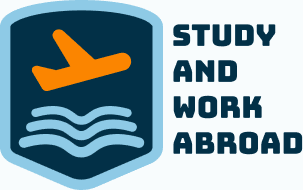Call Us:+91-9920234749, +91-9833420909 info@studyandworkabroad.in
How to Choose the Best Country for Your Studies
Your study country can affect how well you do in school and in your career. The US, UK, Canada, and Australia all have different levels of education, living costs, job prospects, cultural experiences, and options for after graduation. To make an educated choice, here are the most important things to think about.
Comparison Between Countries Suitable for Higher Studies on Various Basis
Study And Work Abroad overseas education experts did a lot of research on education in different countries and put together this study to compare them. Carefully read the next piece of writing.
Educational Quality
Different countries provide varying educational strengths based on teaching style, curriculum structure, and reputation:
- USA
The United States is well-known for its rich research possibilities, course selection flexibility, and prestigious universities (such as MIT, Stanford, and Harvard). The educational system encourages multidisciplinary studies, allowing students to explore a variety of topics before deciding on a specialization.
- UK
There are short, high-quality programs in the UK that lead to shorter degree terms (usually three years for bachelor degrees and 1 year for Master degrees). Many highly specialized degrees are offered by well-known universities globally, such as Oxford, Cambridge, and the London School of Economics. Because of this, they are perfect for students who are really interested in a subject.
- Canada
Recognized for its accessible, high-quality education and student-friendly policies, Canada’s system balances research and practical skills with institutions such as the University of Toronto and McGill. Canadian degrees emphasize both academic knowledge and skill-building, which is advantageous for practical professions like engineering and healthcare.
- Australia
Australia is known for its high-quality education in engineering, healthcare, and environmental studies. Three of the best universities in the world for student-centered learning that blends theory and practice are the University of Melbourne, the University of Sydney, and the Australian National University.
Cost of Living
Living expenses vary significantly across countries and cities, influencing the overall affordability of studying abroad:
- USA
Living costs can be high, especially in urban centers like New York or San Francisco. However, more affordable options exist in the Midwest and southern states. Monthly expenses generally range from $1,000 to $2000 , depending on lifestyle and location.
- UK
The UK has a higher cost of living, with London being particularly expensive. Outside London, cities like Manchester, Birmingham, and Glasgow are more affordable. Monthly expenses for students range from £800 to £1000 , including accommodation, food, and other necessities.
- Canada
Living costs in Canada are generally moderate, with cities like Montreal and Ottawa being more affordable than Toronto or Vancouver. Monthly expenses can range from CAD 800 to CAD 1200 .
- Australia
Australian cities have a high cost of living, especially Sydney and Melbourne. For students, the monthly cost is generally between AUD 1,200 and AUD 2000 .
Job Market
Post-study job opportunities are crucial for students aiming to gain international work experience:
- USA
The US offers an Optional Practical Training (OPT) period for international students, which allows up to one year of work (three years for STEM graduates). Major industries like tech, finance, and healthcare provide abundant job options.
- UK
The UK’s Graduate Route Visa allows students to work for up to two years after graduation (three years for doctoral students). London’s financial and tech sectors make it a competitive job market for graduates.
- Canada
Canada’s Post-Graduation Work Permit (PGWP) allows graduates to work for up to three years, with high demand in healthcare, engineering, and technology fields. It is ideal for students seeking to build their career in a welcoming job market.
- Australia
Australia also provides a Temporary Graduate Visa, which permits work for up to 2 year (up to four years for specific qualifications). Industries such as healthcare, engineering, and IT are in high demand.
Language Barriers
Language is an important factor when adjusting to a new environment:
- USA, UK, Canada, and Australia
These countries are English-speaking, which can be advantageous for students proficient in English. However, Indian students need to pass language exams such as TOEFL or IELTS as part of their admission requirements.
- Non-English Speaking Countries
If you consider other countries, language barriers may be more significant. Students interested in Germany, France, or Japan, for example, should be prepared for language learning and may benefit from language courses.
Cultural Fit
The cultural environment can greatly impact a student’s overall experience:
- USA: With diverse cultural backgrounds, the US fosters inclusivity, particularly in larger cities. However, adapting to American cultural norms may take time.
- UK: The UK is known for its multicultural cities and rich historical background. Although British culture can be formal, it is generally welcoming to international students.
- Canada: Often viewed as one of the friendliest countries, Canada is known for its welcoming approach to international students and its multicultural communities.
- Australia: Known for its modern, outdoor-oriented lifestyle, Australia’s culture is friendly and inclusive, especially for students from diverse backgrounds.
Immigration Policies
Understanding post-graduation residency options can be crucial for students aiming to stay long-term:
- USA: After the OPT period, students may need to find an employer willing to sponsor their H-1B visa. It can be competitive due to quotas and high demand.
- UK: The Graduate Route provides a pathway to work in the UK after studies, and options are available for extending stays with skilled worker visas.
- Canada: Canada’s PGWP and pathways to permanent residency make it a favorable choice for students aiming to settle. Provincial Nominee Programs (PNPs) and the Express Entry System further simplify the process.
- Australia: Students may be able to get longer-term skilled visas if they have worked and studied in a certain area. You can easily get a job with the Temporary Graduate Visa.
Weather and Lifestyle
- USA: The USA has a range of weather, so students can pick a place that is warm, mild, or cold.
- UK: It rains a lot and is cool in the UK. It might take some time for people who live in warmer places to get used to the rain.
- Canada: It gets very cold in the winter, especially in the central and eastern parts, so students should be ready for snow. Canada’s towns are still good places to live in the winter.
- Australia: The mild weather in Australia, especially in coastal towns, would appeal to students who like being outside and living in the sun.
Comparative Analysis of Education in Foreign Countries for International Students
| Criteria | USA | UK | Canada | Australia |
| Education Quality | Interdisciplinary, research-driven | Specialized programs | Academic and practical | Student centered |
| Cost of Living | 1,000-2000 $/month | 800-1000 £/month | 800- 1200 CAD/month | 1,200- 2000 AUD/month |
| Job Market | Strong in STEM, healthcare | Strong in finance, tech | High demand in healthcare, IT | Strong in healthcare, IT |
| Immigration | OPT, competitive H-1B process | Graduate Route Visa | PGWP, residency options | Temporary Graduate Visa |
| Weather | Snowy to warm | Mild, rainy | Cold winters | Warm, sunny |
Conclusion
When choosing a place to study, you need to think about the quality of the education, your lifestyle, job opportunities, and your long-term goals. Using these standards to judge each country will help make the global educational experience rich and consistent.



